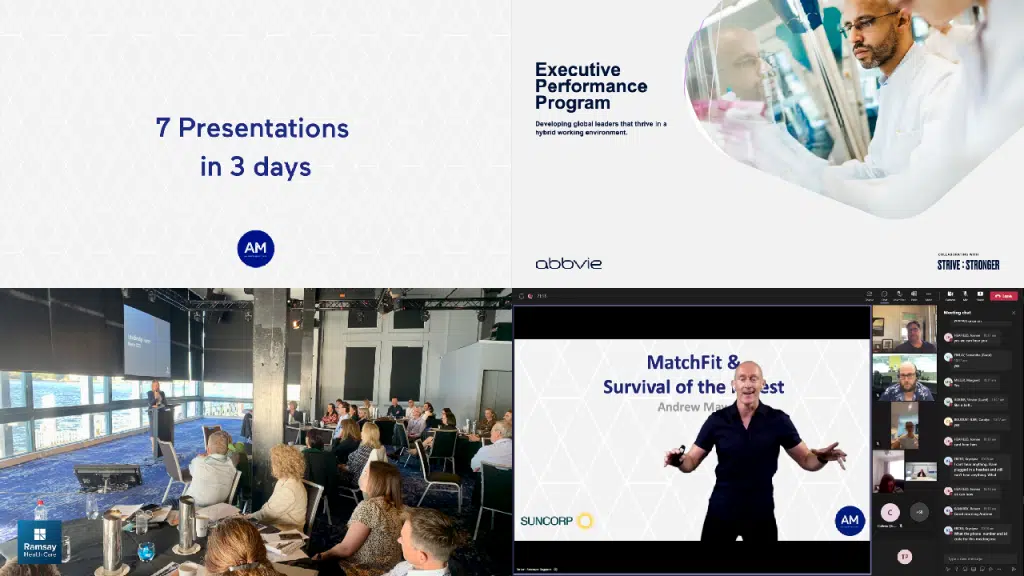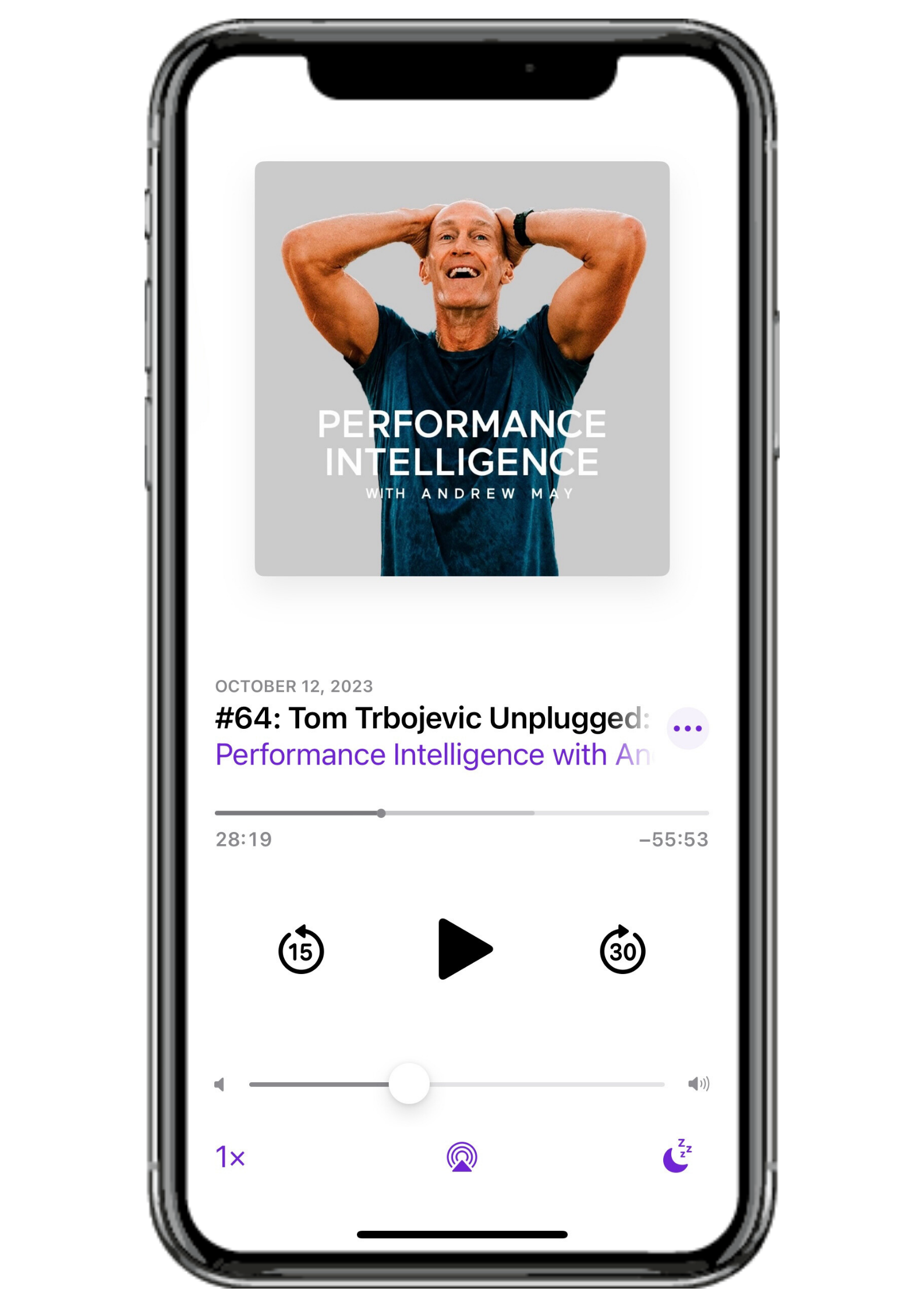Imagine if you had booked a keynote speaker like me 18 months ago to present at your company conference and the presentation went as follows.
“Case scenario, imagine this: What would you do if the world grew four ceramic clogs and stopped spinning? International borders closed. Airports shut down. State borders patrolled for intruders. Coffee shops and restaurants closed. WFH. WFA. Home haircuts. Home schooling. Sticking inside a 5km radius. Not seeing relatives or loved ones. Wearing masks in public.”
How would have you responded?
Most people would have totally tuned out thinking “who-is-this-clown?”
Now, 18 months on the other side of ‘that fanciful case scenario’ playing out, what happens next?
Imagine this: What if employees around the world started to question the what, the why and the how of work.
What is work all about? (Redefining the definition of work).
Why is work important and am I clear about the meaning and value I receive from work? (Purpose)
And how, when and where do I want to work in the future? (New ways of working)
This is exactly what is playing out across the globe. In Australia the Great Resignation is predicted to come to fruition in March 2022. Coaching a number of CEO’s and senior executives and delivering 30 Day Boost programs for multiple organisations in banking and finance, insurance, consulting, and government services over the past 12 months, I can tell you the shakeout has well and truly begun.
The great resignation is being driven due to a rethinking of work and life goals; with employees around the world questioning returning to the old way of work with higher risk of burnout and spending less time with family, friends and loved ones. In many ways COVID-19 has been the shakeout causing people to totally revaluate all parts of their life. And it starts with work.
The Wave has been Building for a Decade
The last several months have seen a tidal wave of resignations around the world, with the U.S. Bureau of Labor Statistics reporting in August alone 4.3 million Americans quit their jobs and a record-breaking 10.9 million jobs were open at the end of July. Research commissioned by Microsoft reveals 40% of the global workforce is considering saying goodbye to their current employer/boss and looking to change where they work.
In a recent Wall Street Journal article, Wharton Professor Adam Grant comments while the shift to WFH during COVID provided knowledge workers with a greater taste of flexibility, the roots of The Great Resignation have been building for years. “More than a decade ago, psychologists documented a generational shift in the centrality of work in our lives. Millennials were more interested in jobs that provided leisure time and vacation time than Gen-Xers and Baby Boomers. The Great Resignation isn’t a mad dash away from the office. It’s the culmination of a long march towards freedom.”
Emerging Trends
In my work as a coach, speaker, author, consultant, mental skills coach, media commentator and podcaster – I am fortunate to mix with a broad range of leaders, organisations, industry sectors and domain experts. My 10 cents worth is there are at least 4 trends bubbling underneath the surface driving a complete rethink about all things work.
1. Human Beings, not Human Doings
Millenials have long questioned the challenges associated with the long hours work culture after witnessing one or both parents chained to the desk, either addicted to or dictated by work, trying to convince themselves amidst all the cognitive dissonance that they were working so hard ‘to build a better quality of life for their family.’ Now multiple generations have had a taste of more flexibility and what it is like to focus more on ‘being.’
In an interview with ABC RN’s This Working Life, behavioural scientist Aaron McEwan from Gartner commented that “pandemics reshape society at fundamental levels and this one has rewritten the psychological contract between employers and employees.”
Historically these contracts have been based on an organisation providing employees with a salary, an office, and a rage of benefits. “Today, employees don’t want to be seen as workers” McEwan positions. “They want to be seen as complex human beings with rich, full lives. They’re not just interested in the experience they can have at work, they’re interested in what an employer does to enrich their life experience.”
For years we blindly turned up to work, in an office, primarily ‘doing’ what we were told. During the 4 weeks of annual leave each year we would dream of a more connected, meaningful, less frantic and hectic way of working and living. COVID has been the catalyst for millions of people to shift from doing to being.
2. Reprioritising Fulfillment over Achievement
While the initial stages of WFH caused a lot of anxiety and stress, once employees adapted and formed new rituals and routines, many started to reprioritise. The time saved by not commuting, and not traveling interstate or overseas has cultivated free space and provided an opportunity to reflect, posing questions like ‘why do I operate/work like that? And is there an alternative?
While not always using the exact terminology, I have had countless conversations during our interactive webinars central to themes of fulfillment vs achievement. ‘Success’, achievement and money can only take us so far. Beyond them, we need to discover what means something to us – what ‘fills us up’ and satiates us.
The word fulfilment comes from the Old English for ‘making full’ or ‘providing a sense of completion’. Research by psychologist Roy Baumeister found having a ‘meaningful’ life tends to be related to fulfilling social relationships, being charitable and engaged in the community, and caring for children.[1] COVID has invariably jolted millions of employees around the world to go deeper on fulfillment.
3. Work is Something You Do
The way we work has witnessed dramatic shifts in our technological, cultural, political, and economic environments – and not by choice. COVID-19 has forced a revolution in approach to work.
Why does that matter so much? Because, as much as work adapts to and is shaped by our environment, we adapt to and are shaped by it.
Work is no longer somewhere you go, it is something you do.
You can work anywhere, anytime and on any device. It’s easier than ever to set your own schedule, to balance work and life, to work longer hours (or shorter), to be more productive (or less), to make it to that mid-day physio appointment or work around the school pick-up.
This kind of flexibility was an inevitable outcome for a world that is increasingly digital and personalised. COVID-19 has accelerated (pushed) both employers and employees who may not have been quite so open-minded to embrace change. With this necessary, widespread – and yes, unprecedented – change in the world of work, we need to come up with a new definition of work and a new model of how we connect as we do work.
4. Surge Capacity is Spent. Burnout is on the Rise
Surge Capacity is a set of mental and physical adaptive systems that give us the extra energy we need to survive short periods of high stress. Our biology has not been designed for extended periods without respite or recovery. Over the past 18 months there has been very little ‘re’ with our lives void of ‘recovery, recharge, recalibrate, refresh and rebalance.’
And remember the pandemic came on the back of a fast-paced digital revolution, drought, floods, bushfires and an economic downturn. For many businesses and leaders, there has been no downtime, no ebb and no flow. Just constant bombardment from one event to the next.
More than 50 per cent of workers reported feeling burned out in the last year and these figures are set to spike again as workers drift back into the office. Research suggests this figure rose by 10 per cent during the last 18 months in and out of lockdown. It has been, for many people, the straw to break the camel’s back, working longer hours and the inability to unplug from work key factors contributing to pandemic burnout.
The Litmus Test = Friday Morning Cycle Squad
For close to a decade, a bunch of male and female fitness friends have been congregating at Centennial Park 6am every Friday morning for StriveStronger Cycle Squad. I have known some of the group since I was 10 years old and find this group is a great litmus test for what is happening across society. When I ran The Great Resignation comb over the collective group, it uncovered the following:
Benny packed up from Sydney a year ago and is now living with his family in a beautiful house in Cabarita, north-eastern NSW, near Kingscliff.
Ryano and Aurelie sold their apartment on the lower north shore and are hanging out with the Hemsworth posse in Lennox Head.
The Bolt and his family have been chasing sheep, living on the family farm in the Hunter Valley for the past 4 months.
Johnny W got a posting to New York and is now living and loving the Big Apple.
Gastby packed up and moved to London to run a bank.
Carry and his family are navigating the bustling streets of Bangkok.
GT now resides in PNG after spending a year in India.
And while Benny, Ryano, The Bolt, Johnny, Gatsby, Carry and GT have all ‘resigned’ from our cycle squad, Strava tells me none of them have resigned from cycling, they are just no longer meeting us in Centennial Park.
Slowly, there has been ‘a great resignation’ in our Friday morning squad. Each in their own way have been jolted into change due to COVID, new ways of working and form part of the great relocation/resignation.
Note: The size of our squad varies most weeks from 10 to 15 lycra-clad enthusiasts, so this is a significant proportion of our tribe.
Questions Need to be Asked
If you have been reading this blog and had moments where you thought “I think he’s talking to me”, I encourage you to invest some time to explore the following questions.
Suggestions for employees to think about:
Millions of people around the world are challenging the status quo as we transition to a new hybrid model, tearing up the old and rewriting a new model of work.
- Why is work important to me and what do I want to achieve from my job?
- Am I prepared to sacrifice less money for greater freedom?
- What type of industry do I want to work in?
- What type of hours do I want to work each week?
- What type of leader, organisation and culture am I attracted to?
- Where do I want to live?
- What is my personal purpose and how do I want to live in the years ahead?
Suggestions for employers to think about:
I see and hear a lot of panic amidst large organisations right now in relation to keeping and attracting talent. Rather than spinning around worrying about what is going to happen, proactive organisations have a real opportunity to redefine the employee/employer relationship. Questions for leaders and organisations include:
- What do I/we really stand for?
- How do we attract and keep good talent?
- What is our company value proposition other than just money/paying people?
- Are we prepared to have a lot more flexible work practices?
- How do we embed a strong company culture and create an organisation people want to join?
- Are there areas in our leadership model/culture that we really need to change?
- How do we create a purpose-aligned organisation where people want to work?
Final Ponderings
No one really knows how this is going to end.
Even the futurists missed predicting COVID.
But with massive change and disruption comes growth and opportunities to change working models, beliefs and ‘what we do around here.’
How are you going to leverage this unique moment in our lives and really shape the type of professional and personal life you’ve dreamt of having? Exciting times ahead!
Andrew May
[1] R. Baumeister, K. Vohs, J. Aaker & E. Garbinsky (2012) ‘Some Key Differences between a Happy Life and a Meaningful Life’, The Journal of Positive Psychology, 8 (6).





